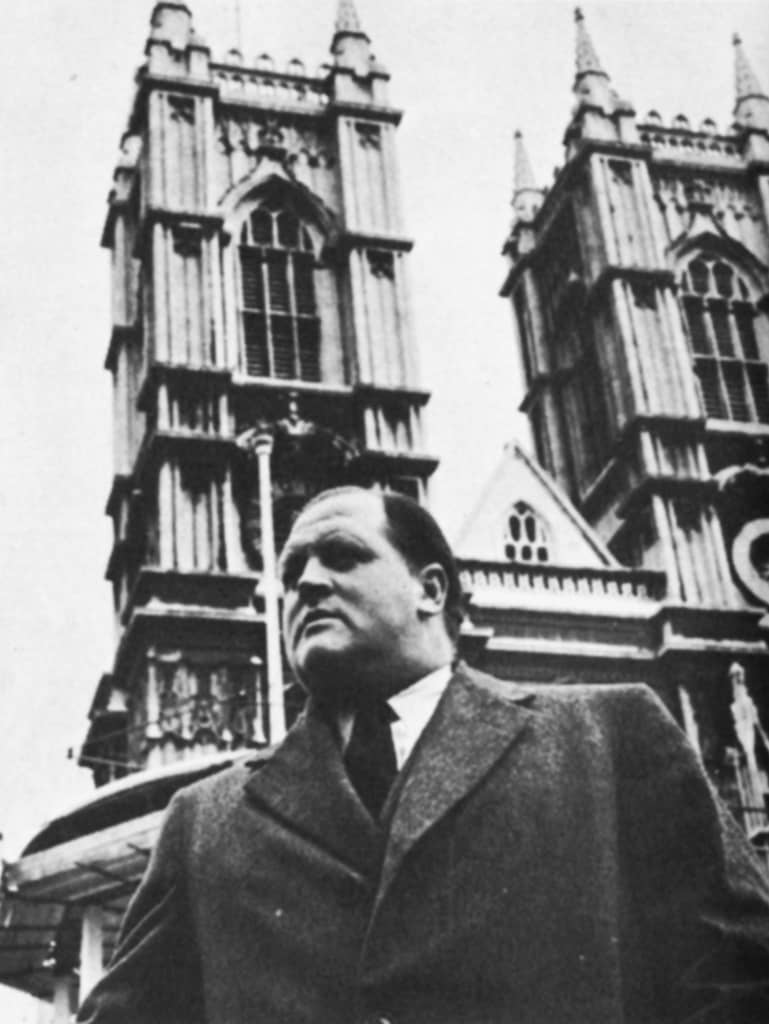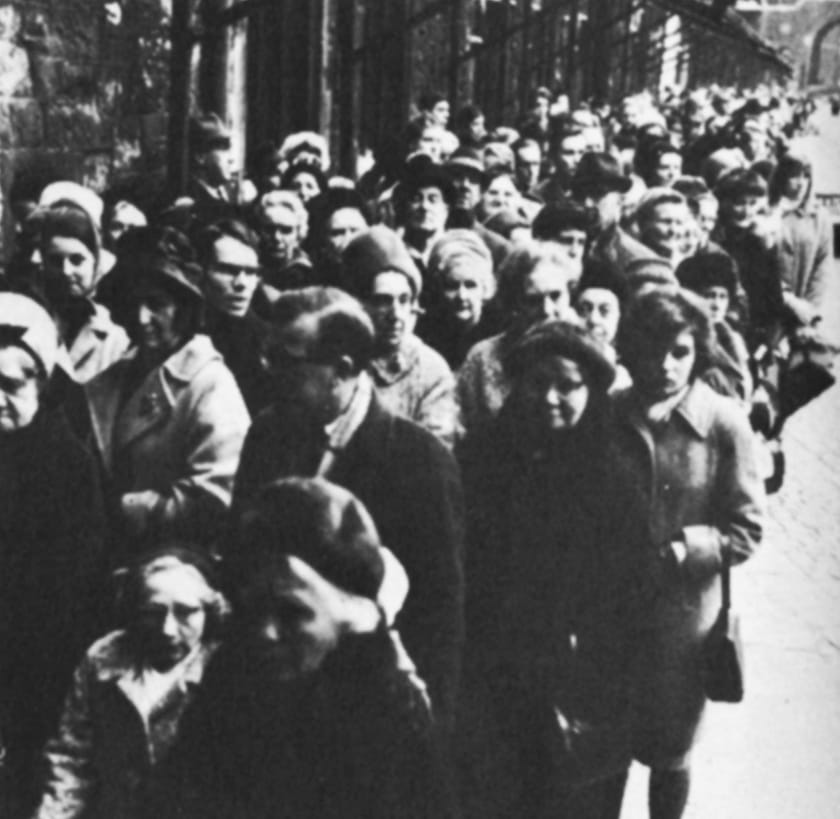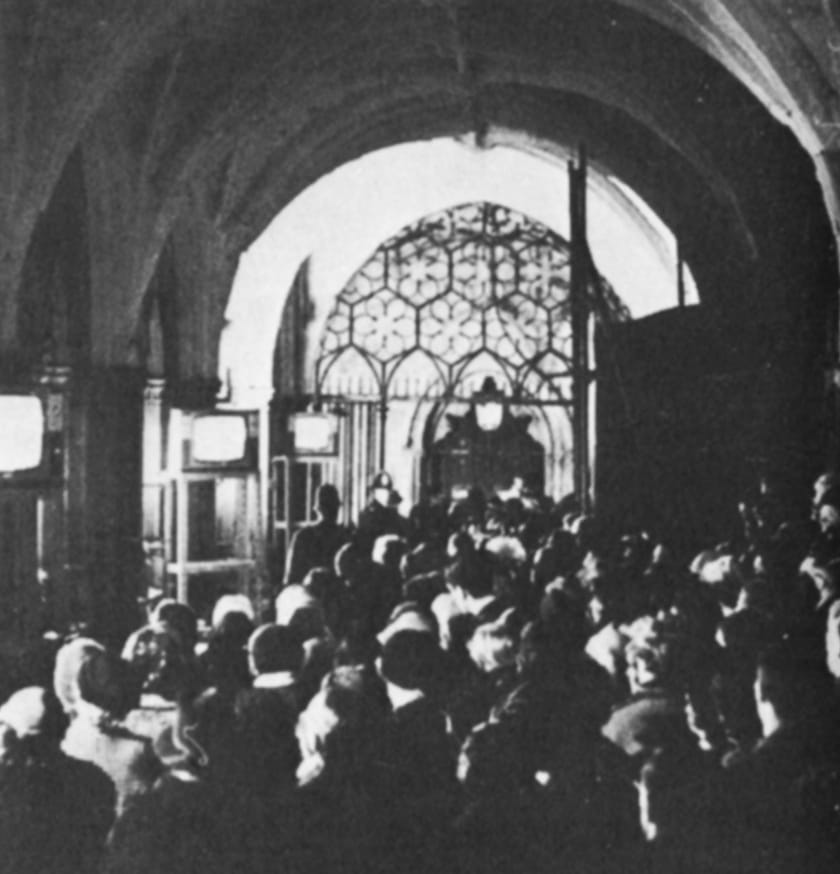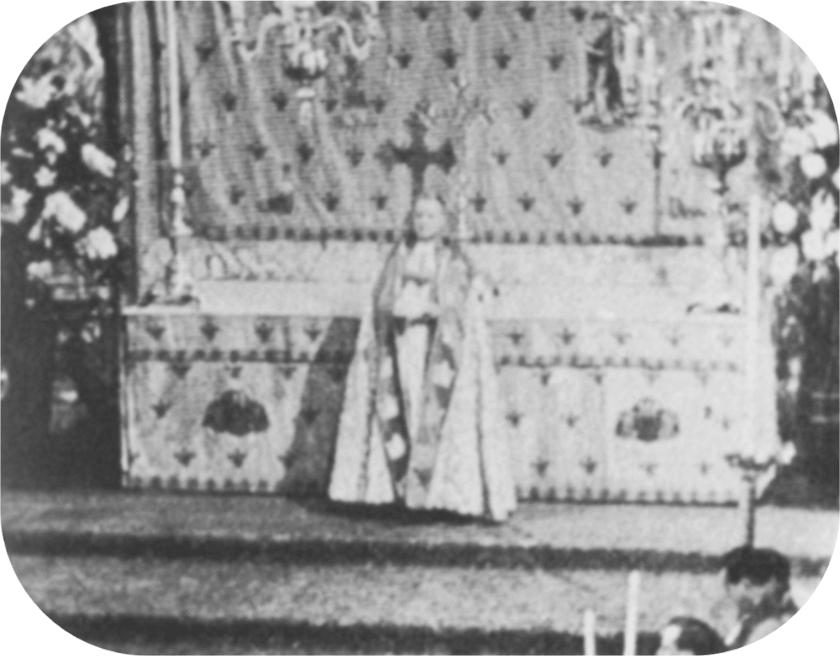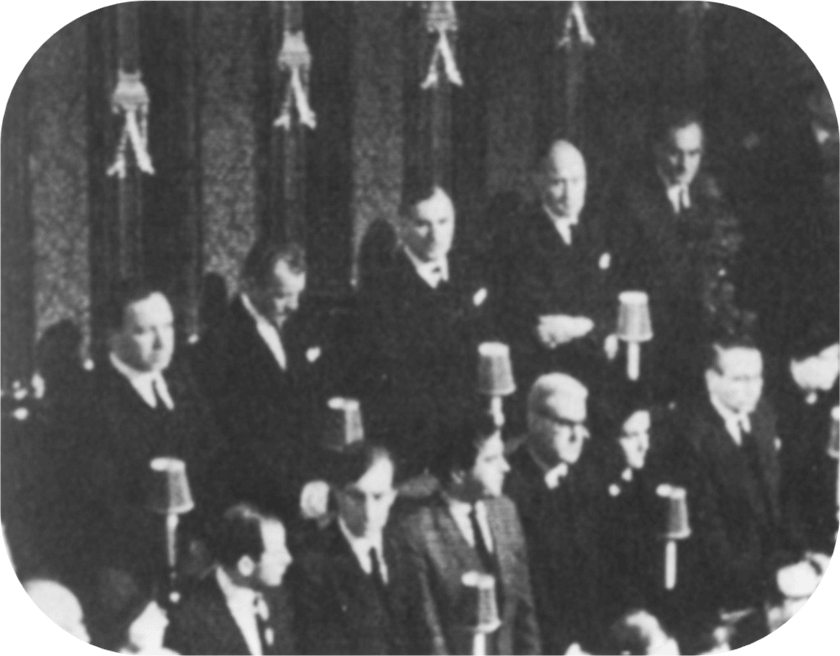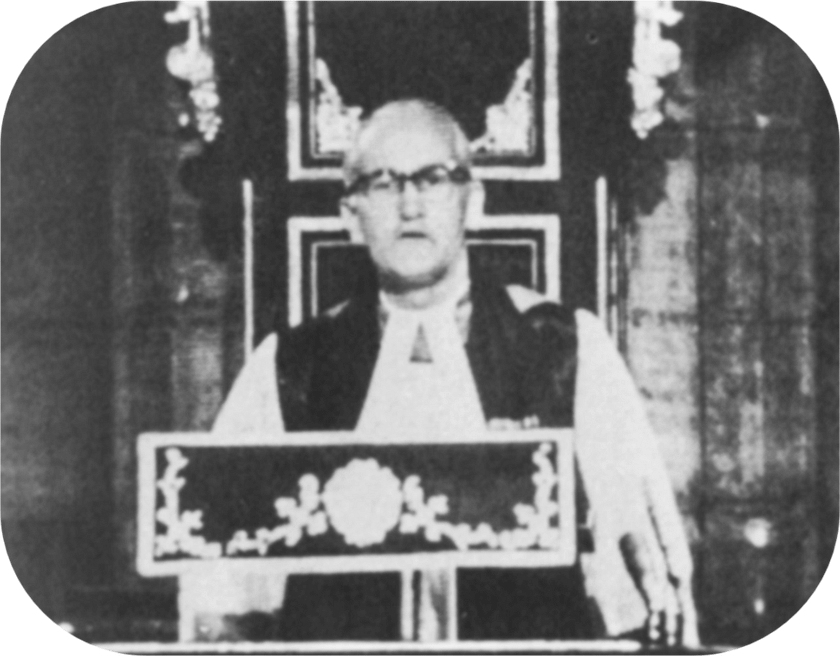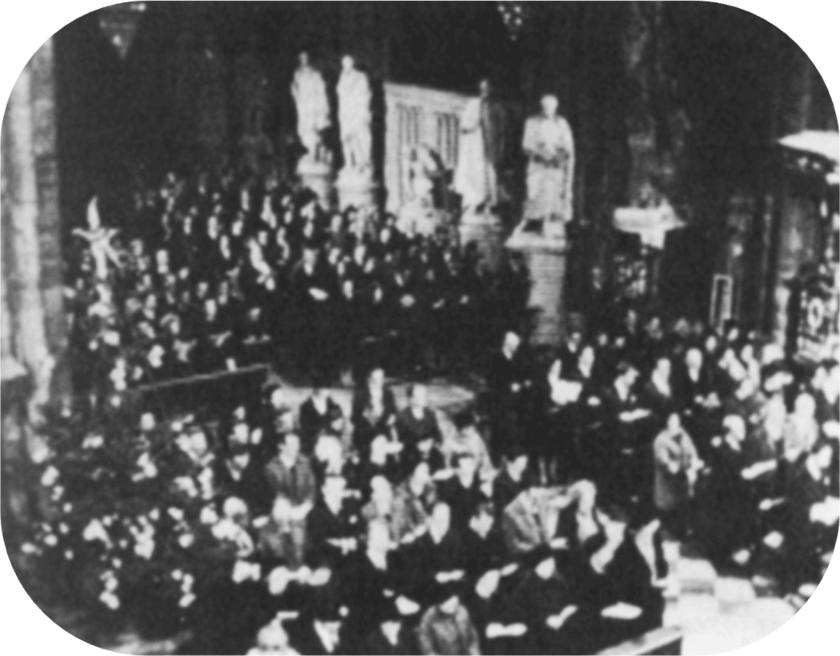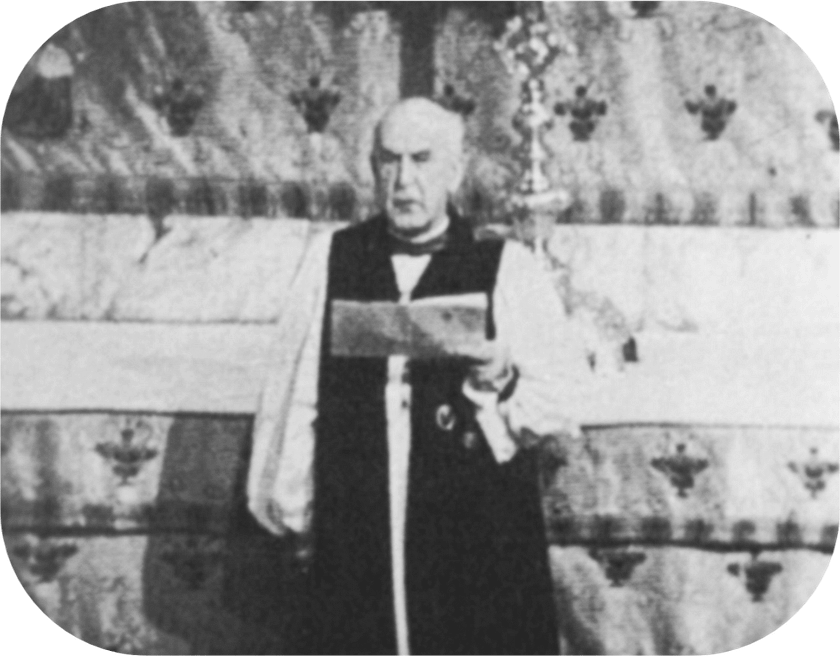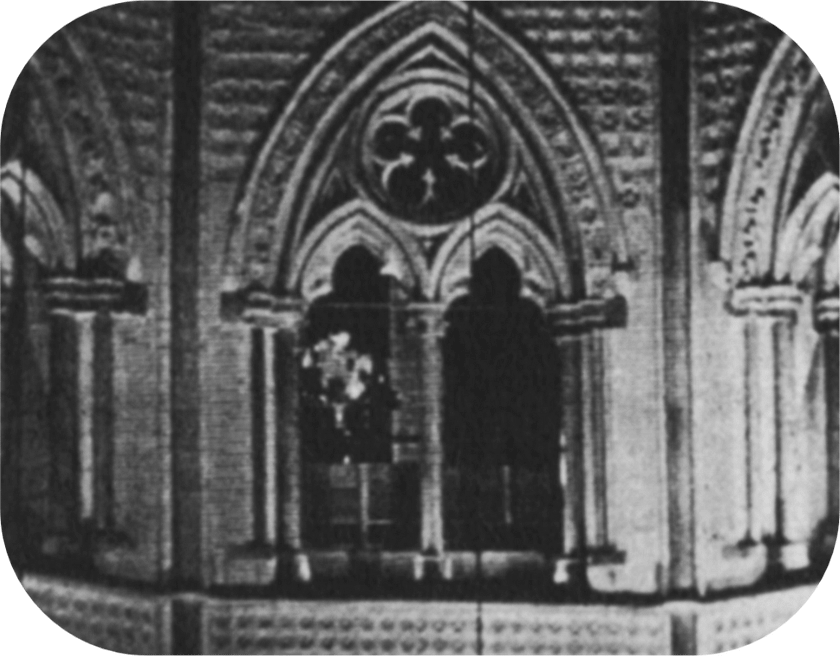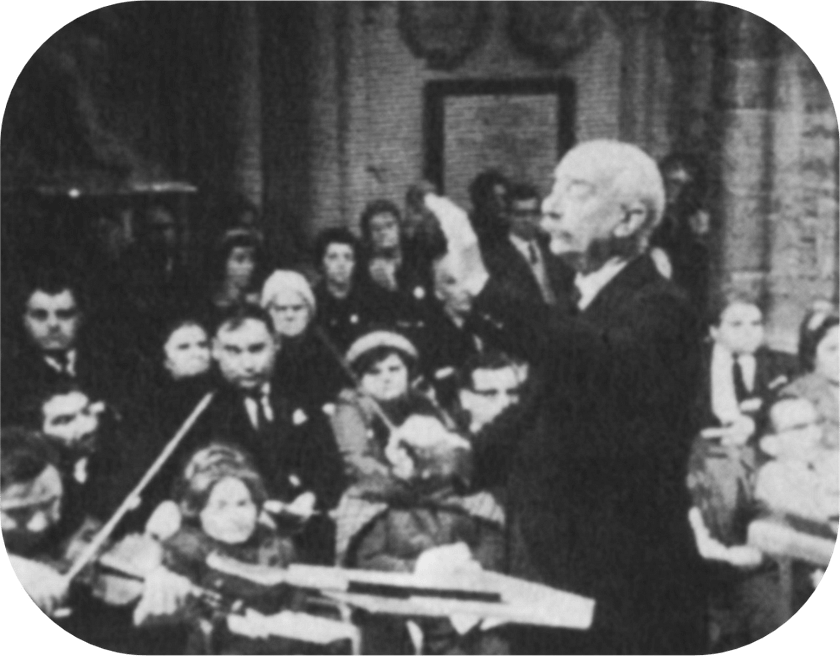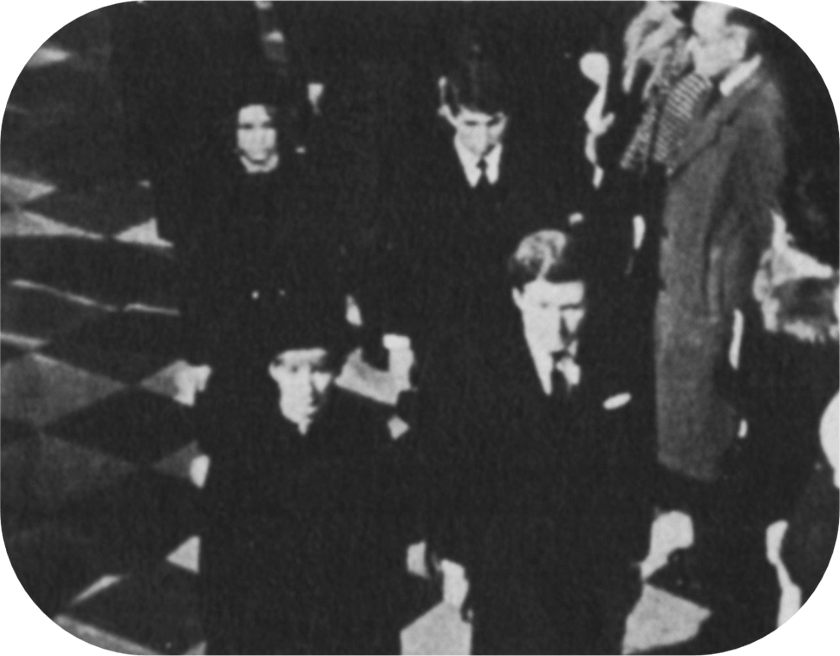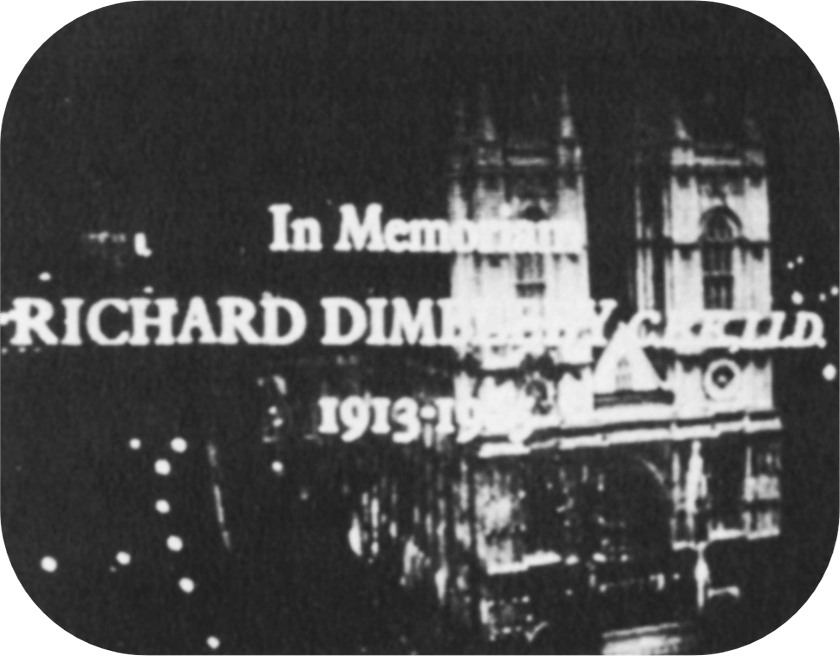The Dimbleby family received several thousand letters. Many wished to give practical expression to their affection and admiration for Richard. The Richard Dimbleby Cancer Fund was quickly established, to which the profits of this book and of the companion long-playing record will go. The public response was immediate and strong.
Richard Dimbleby sometimes called Westminster Abbey his ‘workshop’. On the morrow of his death the Dean of Westminster straightway suggested that a Memorial Service should be held in the great cathedral church where England honours those who have done outstanding service. Moreover the Dean and Chapter decided that none of the substantial expense of holding an Abbey Memorial Service should fall upon either the Dimbleby family or the BBC.
The service on 4 January 1966 was a fitting farewell to the man who had so often been the spokesman of the BBC, and of the nation, at Westminster Abbey’s great occasions. The Abbey was freshly adorned and floodlit in celebration of its 900 years. Close to the High Altar a Christmas Tree still stood, with golden bows and bells the only decoration to its dark green branches. Television lighting enhanced the brilliant colouring of the choir stalls and the vestments. For hours beforehand patient queues had formed behind unopened doors.
After every seat was taken, hundreds crowded into the cloister to watch the Memorial Service on television. Others outside the West Door listened to the Sound broadcast on loudspeakers. Five million viewers at home saw the service at 4 p.m., and another six and a half million watched a recording at the end of the evening. Dr Eric Abbott, the Dean of Westminster, conducted the service and read a prayer for broadcasters. The address was given by Dr George Reindorp, Bishop of Guildford:
‘Praise my soul the King of Heaven, to His feet thy tribute bring.’ And the tribute we now bring is the life, work, art, friendship and love of Richard Dimbleby.
The very mention of his name conjures up in the minds of millions a person, someone they felt they knew. Many here in the Abbey did know him personally – those who shaped and shared with him the priceless treasure of a happy home – to whom today our hearts go out in loving sympathy. You in the BBC were his colleagues. So were you in his newspaper for which he cared so much. You all pay tribute here to a man, a friend, a colleague whose work inspired your admiration, marred by never a hint of jealousy.
The measure of his contribution to our English way of life is the fact that almost everyone in England would wish, if they were able at this moment, to give their own picture of what Richard Dimbleby meant to them.
Why is this? Was it because he was a prodigious worker, covering an immense amount of ground in an all too short life? Not entirely, though he was certainly that. Was it because he was a superb professional, demanding the highest standards from himself and inspiring all around him to attain them also? Not entirely, though he was a master at his art. Was it because, although broadcasting cannot speak to the individual, broadcasters of genius can nearly seem to do so? Not entirely, though he was certainly one such.
It was because there was something in him which responded to people as people. Queens and cameramen, bishops and bakers, politicians and printers, homes and husbands, craftsmen and children – these were of the stuff of England’s green and pleasant land which Richard loved. To describe them to others, to hear their point of view, to admire their craft, to listen to their hopes and fears, to help their fellows to assess their value in the moving line between past and present which we call history – this for Richard made sense to his integrity of soul which was his supreme possession.
And it was just because he knew these people, because something in him responded to the majesty and meaning of what was happening that, in the words of Garter King of Arms, he ‘originated and established the new profession and art of commentator on the great occasions and ceremonies of state’. For though he walked with kings and queens, he did not lose the common touch; and knew how by word and by silence to interpret to us ordinary English people throughout the land the outward expression of our heritage and history.
The broadcast Memorial Service, with the Dean of Westminster, mourners in the Abbey, Bishop of Guildford, and Archbishop Lord Fisher
But his unique contribution to our state occasions must not cloud our gratitude for much, much more. A brilliant war reporter, sharing the experiences of fear and danger, his visit to Belsen, one of the first people to go there after the war, left an indelible mark on him. From then on he was never without the knowledge of what can happen to an individual in horrible cruelty, or in squalor; what can happen to those who are unloved or uncared for. And just because of this, the English scene, the English people, their moments grave and gay, gave to him a security which he in turn gave back to them in admiration and service. Richard really cared.
When in those marathon broadcasts about the General Elections Richard Dimbleby announced the results from here or there and added some homely comment about this place or that, you always felt that he was recalling this individual or that whom he had met there. Perhaps it was you in the Abbey, or you in the crowd overflowing the Abbey in the cloister outside, or you viewing, or you listening, or you, or me. And it usually was. For remember that long before Panorama became part of the English scene, for five and a half years, for two days a week, Richard was Down Your Way touring these islands among the people whom he loved, mindful, as Milton taught him, that ‘where there is much desire to learn, there of necessity will be much arguing, many opinions: for opinion in good men is but knowledge in the making’.
Memorial Service: the empty commentary box, Sir Adrian Boult, the family
And it was to avoid embarrassment to these English people he knew so well that without any fuss or heroics he allowed the secret of his cancer, shared by his family and friends for five years, to be made known to the public who would miss his part in their daily life. And by his action he gave courage and hope to many in the knowledge that if he could face this scourge squarely, so could they. And his example shone bright in a dark day.
Who shall pay the last tribute? Shall it be a Surrey housewife who said: ‘He made many things real to me. In an age of shams he was a man of integrity’, or shall it be the anonymous writer of perhaps one of the most human of the thousands of letters that poured in to him in hospital:
Dear Mr Dimbleby,
My wife and children asked me to write to you and say how sorry we are that you are ill, and how much we miss you on Panorama.
Who am I? Just an ordinary roadman from Berkshire.
See you down my road one of these days.
Yours faithfully,
The Roadman.
Now Richard has left us. Sometimes as we stand on the shore waving goodbye to a ship – as she fades hull-down on the horizon, lost to our sight, we say ‘There she goes’, and turn away heavy-hearted. But we forget that there on the further shore eager eyes are watching for her and eager hands stretch out in greeting.
So, too, with Richard. With quiet confidence and deep gratitude and love, we commend him to the King of Heaven, firm in the knowledge that death cannot kill the bond of love which lifts us all above time and space into the heart of God Himself.
Archbishop Lord Fisher spoke the Commendation of the Departed. It referred to Richard Dimbleby’s gifts of mind and heart and spirit which ‘he improved by care and diligence so great that he established a new art and a new profession of communicating to the people by a commentary the outward forms and the inward meaning of great occasions both in Church and State’.

